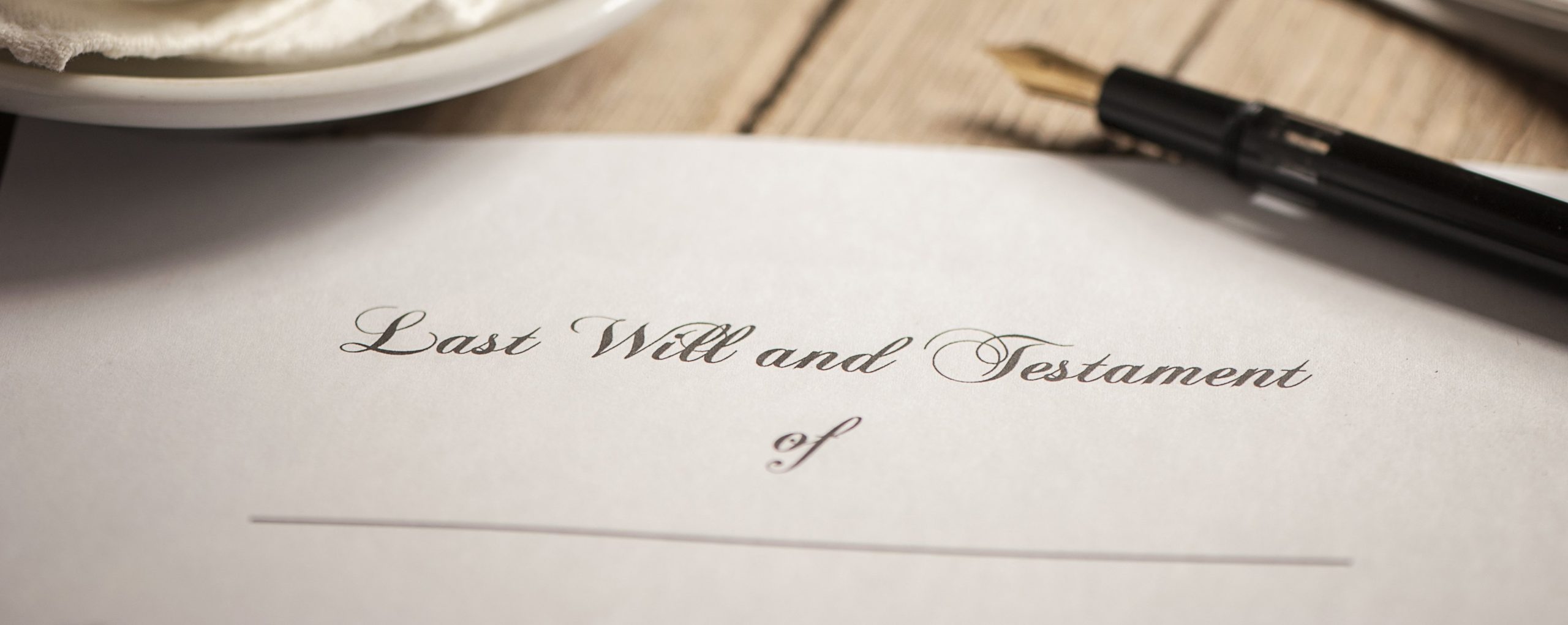
Dying Without A Will In North Carolina
When I meet someone for the first time and they find out I am an estate planning attorney, the person often volunteers a confident declaration followed by a less confident question that goes something like this:
“I don’t have a Will because I don’t have much of an estate and the law is going to give it all to my spouse anyway. Right?”
It is not right, but their belief isn’t entirely wrong either. So, I thought it would be helpful to break down exactly what happens if you die without a Will in North Carolina. In attorney-speak, we call this dying intestate because it means the Intestate Succession Law will control who gets what from your estate. Choosing not to make a will really means you are actively choosing to let the State of North Carolina decide how to distribute your property and who will care for your dependents.
The Intestate Succession Law covers a number of different scenarios. As you will soon realize, it is almost never as simple as “my spouse just gets everything.” Below are a number of scenarios and an explanation of what the State is required to do when you die without a will.
The 5 Most Common Situations
If your estate has any assets, the estate must first pay your personal debts, the cost to administer your estate, and any funeral and burial expenses. Then the remainder of your assets will be divided between your heirs, depending on which particular situation or category you best fit.
- Single with No Children
If both your parents are living, then they divide your estate equally. If only one of them is alive, then that parent will receive your whole estate.
Simple, right? Yet, what if you are estranged from one of your parents and have not spoken to them in years. Unless the good parent can prove that the estranged parent abandoned you in childhood than your estranged parent is going to take half of your estate.
Another complication can occur with unmarried couples living in long-term committed relationships. You probably do not want your life partner to be at the mercy of your parents upon your death, or worse, at the mercy of an estranged parent whom you have not spoken with in decades.
- Married with No Children
Many of the people that mistakenly believe their spouse will get everything if they die without a will fall into this category. Your spouse only gets everything if both of your parents are no longer living.
If you die without a will in this situation, your spouse will receive the first $100,000 of your personal property and your remaining personal property will be split 50/50 between your spouse and parents. Plus, any real estate that you owned personally would be split 50/50 between your spouse and parents.
With people marrying later in life, it is not uncommon for one spouse to already own a home before the marriage. People who have not taken the time to make a will have usually also not taken the time to retitle their property to be jointly owned with their spouse. It can be quite the shock for the surviving spouse to find out their in-laws now own half their house.
- Married with One Child
In this scenario, your spouse will receive the first $60,000 of your personal property and split the remainder 50/50 with your child. Your spouse would also equally split any personal property you owned with your child.
- Married with Multiple Children
If there is more than one child, your spouse will receive a one-third interest in any of your personally owned real estate, and your children would receive the remaining two-thirds interest to be divided among them equally. Your spouse would receive the first $60,000 worth of your personal property and one-third of the remaining personal property, while your children split the remaining two-thirds interest in your personal property.
- Unmarried with Children
If you die without a will in this scenario than your children will divide your estate equally.
Leaving Behind Children
The last three situations involving kids are the messiest when it comes to dying without a will.
First, the intestate succession statute says nothing when it comes to selecting a guardian for minor children. If you leave behind a spouse, they would continue raising the children. However, if you are divorced, your spouse passed away before you, or the two of you died simultaneously, expensive and contentious court hearings may be required in order to decide who will be appointed your minor children’s guardian. The person who is appointed to raise your children may not be who you would have wanted, but with no will you give up any say in the process.
Click here to learn more about choosing a guardian for your children
Second, the Intestate Statute creates the potential of leaving your minor children significant assets. These are often the assets many people mistakenly believe will be handed over to their spouse if they die without a will. Since minors cannot own property outright, the court must appoint a Trustee to manage and look after the child’s assets. This can be an expensive and time-consuming process. The Trustee, who is often the child’s remaining parent, will be required to provide an annual accounting that details how the assets were spent for the child’s benefit. A yearly-stress inducing accounting exercise is probably not something most of us want to inflict on our loved one when we are gone.
Third, there is the very common issue of blended families. You may have raised and loved a step-child as if they were your own biological child, but if there was never a legal adoption, the law in North Carolina leaves nothing for that child if you die without a will.
Final Thoughts
The five scenarios above are the most common, but are not exclusive. North Carolina’s Intestate Succession Statute is a good faith effort to distribute an individual’s property in an equitable way when a person has chosen to forego making a Last Will and Testament. Unfortunately, very few people fit into the cookie cutter profiles that the law envisions. Luckily, we all have the right to customize the law to fit our precise circumstances. We just have to draft a will and properly execute it.
Carolina Estate Planning works with individuals and families to make sure they have the proper estate planning documents in place. To schedule an appointment, click here. If you have additional questions give us a call at 336-790-5107.

